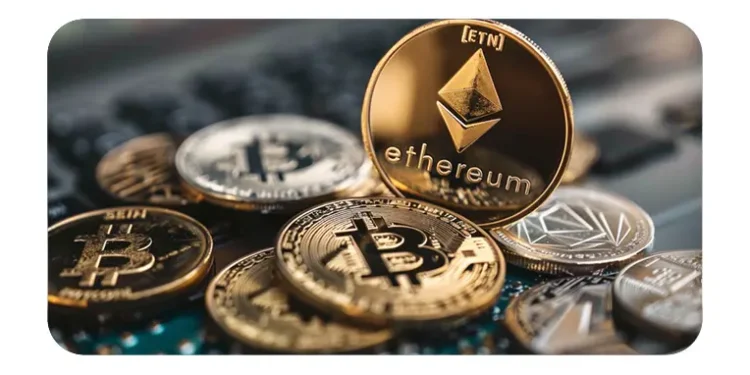Ethereum’s Prospects of Outpacing Bitcoin: A Comprehensive Review
An esteemed figure in the cryptocurrency realm makes a bold claim suggesting that Ethereum’s market cap will eventually overshadow Bitcoin’s. This prediction draws from a thorough analysis of Ethereum’s distinctive features, the evolving blockchain landscape, and the mechanisms behind market value generation.
Diving into the Theory
The expert ardently argues that decentralized public chains rooted in blockchain technology will form the backbone of the future economy. It is posited that the worth generated by such platforms could one day exceed the current value generated by human society. To enable such an ambitious ecosystem, a public blockchain must demonstrate traits like decentralization, censorship resistance, security, and Turing completeness. Presently, the expert contends that only Ethereum fulfills these rigorous criteria, despite facing ongoing challenges and criticisms.
Insights from the Expert
The insights put forth echo sentiments shared by other blockchain specialists who highlight Ethereum’s scalability via its layered networks—encompassing layer two and beyond—crafted to boost operational capabilities. The expert states, “While layer two solutions currently capture a considerable portion of the economic value within the Ethereum ecosystem, the underlying issue lies in the scarcity of original content on-chain.” Nonetheless, optimism abounds for future expansion, as Ethereum’s ecosystem flourishes, asserting that ETH will authentically capture environmental value.
Market Overview: A Comparative Perspective
The existing landscape illustrates that Bitcoin’s value largely hinges on collective consensus, akin to the historical role of gold in economic frameworks. With Bitcoin’s relatively young age—paling in comparison to gold’s extensive history—its swift rise to a significant market standing is remarkable. However, this comparison delineates a crucial divergence: Bitcoin’s surge might plateau, leading to a diminishing growth rate, while Ethereum’s potential is envisioned to perpetually expand in sync with the broader economic ecosystem it bolsters.
Examining historical context further underscores this rationale. The departure from the gold standard exemplifies how economic progress can surpass fixed asset valuations. Before the Industrial Revolution, generated value was predominantly confined within the sphere of available gold; yet, exponential economic advancement has since rendered a gold-centered value system inadequate. The question arises: as value generation advances, could Ethereum—a platform designed to underpin the on-chain economy—surpass the market capitalization of the “digital gold,” Bitcoin?
Impact Assessment: A Glimpse into the Future
As Ethereum progresses, its aptitude to seize environmental value from its burgeoning ecosystem positions it as a formidable rival to Bitcoin. Should Ethereum persist in expanding its functionality and adoption, it could attain a market capitalization that not only competes with but potentially exceeds that of Bitcoin. This prospect relies on the proliferation of economic activities on the blockchain and the embracement of decentralized platforms supporting innovation and value generation.
Conclusion: A Promising Horizon
To summarize, the conviction that Ethereum will eventually surpass Bitcoin’s market capitalization is grounded in solid reasoning concerning its foundational strengths and the evolving dynamics of value creation within the ecosystem. While Bitcoin remains a juggernaut acknowledged for its historical significance, Ethereum’s adaptability and potential for boundless growth within its decentralized structure paint an encouraging future. As the blockchain arena continues to mature, attentive observation and evaluation will be imperative for stakeholders navigating this dynamic yet volatile market realm.
As always, ChainCatcher urges readers to approach blockchain investments cautiously, highlighting the risks associated with virtual token releases and speculative endeavors. All content provided is for educational purposes and is not intended as investment counsel.








